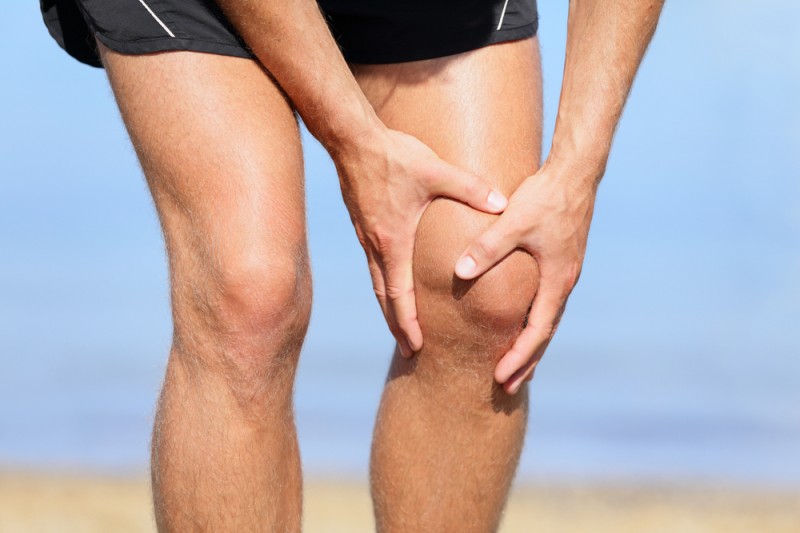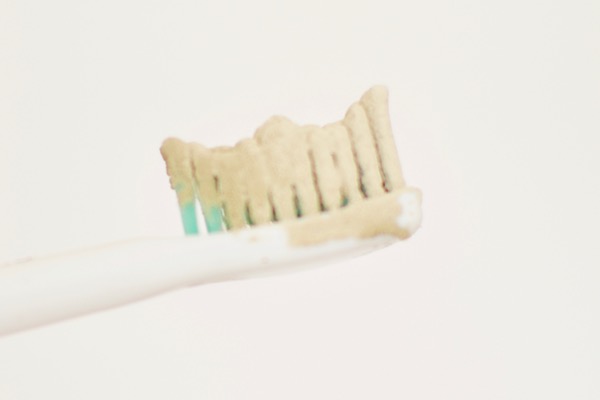Find out what could be causing your knee joint pain!
The knees are the most commonly injured joint in the body. The knee has many individual components, and all of them can be damaged surprisingly easy. Add to that the fact that your knees sustain 90% of your body weight ALL DAY LONG, and you can see why knee damage is so common.
Do you know what’s causing your knees to ache or hurt? Here are a few of the most common reasons for knee joint pain:
- Ligament Damage — Ligaments are connective tissues that connect the various bones in your knees to each other. They connect your kneecap to your leg bones, and connect the leg bones to each other. If you are an athlete or you train hard, it’s very common for the ligaments to be pulled, leading to sprains and tears. There are three ligaments in your knees (front, back, and middle), and if any of these ligaments are torn or damaged, it can lead to pain and swelling in your knees.
- Arthritis –– If you have pain in your knee joints, it’s possible that you are suffering from a form of arthritis. Osteoarthritis is caused by excessive wear and tear on the joint, and the cartilage between the joints gets worn away. Rheumatoid arthritis is an autoimmune disorder, and your body actually ATTACKS the cartilage–seeing it as an invader. Both forms of arthritis can wear down the cartilage cushioning your knee joints, allowing your leg bones to rub together. This can be incredibly painful, or it can lead to a dull ache, swelling, and reduced mobility. Knee arthritis isn’t as common as arthritis in the hands and fingers, but it is one of the more common reasons for knee joint pain.
- Cartilage Damage –– Cartilage is the semi-hard, flexible tissue that sits between each of the joints in your body. It helps to cushion the joints, stops the bones from rubbing together, and gives you the mobility and flexibility you need. The meniscus is the cartilage in your knees, and it sits inside your knee and right along the outside of the joint. If you tear the cartilage, it can be a pretty painful injury. It’s also a serious one that requires a surgery to repair!

READ MORE: 12 Foods for Stiff Joints
- Post-Traumatic Arthritis — If you have recently suffered from an injury (trauma) to your knee that resulted in cartilage damage, torn ligaments, or fractured bones, it’s very common to develop post-traumatic arthritis. Basically, the injury has caused the cartilage to be worn away, leaving your knee painful, swollen, and stiff.
- Other Less Common Reasons —Here are a few more things that could be contributing to your knee joint pain:
- Bursitis, or a form of swelling caused by overuse of the knee joint.
- Tendinitis, swelling resulting from tendons damaged by excessive use.
- Dislocation, or the kneecap or leg bones slipping from their proper place in the joint.
- Tumors, specifically located in the knee or leg bones.
- Baker’s cysts, a buildup of the fluid in your joints that can lead to swelling and limited mobility.
- Gout, caused by a buildup of uric acid crystals in your knees.
- Chondromalacia patella, which is basically damaged cartilage beneath your kneecap.
These are all things that could be the reasons behind your knee pain, and you need to realize that a few of them are pretty serious! If you feel pains or aches in your knee joint, it’s vital that you visit your doctor and get them checked out.








